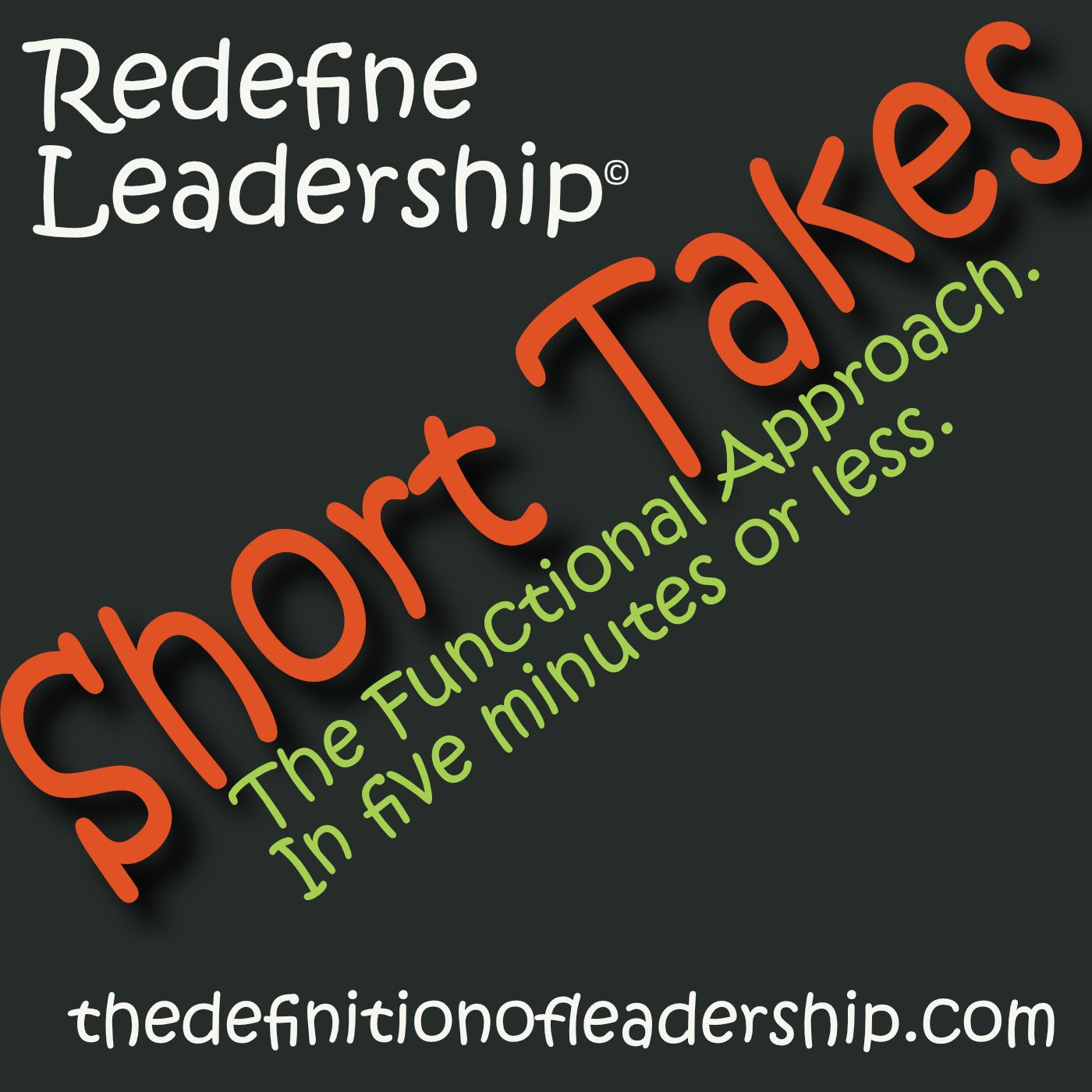Discover Redefine Leadership: Short Takes
Redefine Leadership: Short Takes

61 Episodes
Reverse
Learned behaviors are hard to replace, even if we want to do something different. But the world moves forward, and opportunities pass us by. What have you thought about doing, but haven't yet?
Always separate praise and feedback. The compliment sandwich not only doesn’t lessen the discomfort of feedback, it destroys the value of the praise. Here are some practical ways to resolve both problems, and avoid the well-intentioned but extraordinarily counterproductive compliment sandwich.
Imposter Syndrome is a myth. Not the feeling, but how we are told to handle the feeling. That discomfort and self-doubt is actually a learning marker, and with the proper support, it is a critical motivator for learning.
Shared accountability is where members hold each other accountable for the group's performance. Most organizations lack the strength of the functions of leadership that is necessary for this form of accountability. Here are four things ways you can encourage shared accountability.
The functional approach to leadership allows us to see feedback not as an annual performance process, but rather as an interchange that moves information from one place to another. Constant feedback shows the members of the organization where the group’s performance falls short of excellence. When we give constant feedback over time, it becomes a pattern of group behavior that allows each member to direct his or her own improvements. These seven tactics will kick-start your constant feedback habit.
(Part 2, Organizational Culture Change) Organizational culture is a symptom of work. To change culture, we have to understand how these elements enable work to be performed, and therefore why it is uncomfortable to change them. Then we can act on the work itself to shift the limits of what is possible.
(Part 1, Organizational Culture Change Series) Culture change is often a judgment that behaviors are bad. Functional leadership flips this paradigm upside down, to performing work.
Stop asking, "What Do Good Leaders Do?" because it doesn't help you be a better leader. Here's what to do instead.
The function of learning allows the group to explore new, better ways to do the work. Learn three critical strategies to build learning into your organizational processes as you hire employees or grow your business.
Books expose us to new leadership ideas. If we don't have this exposure, our growth is limited by chance and luck. With a constant stream of new ideas, we can improve one small bit at a time but immeasurably over a lifetime. This is the return on investment of a book. In this episode, we discuss several specific tools and ideas to make reading more productive.
Entrepreneurs (and new supervisors and managers) become leaders through a process of learning. In this third episode in the Entrepreneurs and Leadership series, we discuss the function of learning and the specific challenges experienced by new leaders.
Leadership relationships are how people work together to complete tasks in an organization. In this video, we introduce the concept of leadership relationships for the new leader or entrepreneur who is scaling a business. Learn the difference between interchange and emotion relationships, and how each type limits the quality of work that the organization produces. Get actionable tips about how to improve each type of relationship.
This excerpt from the full "Building Leadership Relationships for Entrepreneurs" episode is the example of inventory. If your organization struggles to consistently manage resource inventory, this is for you. Quit running out of raw materials and supplies; learn how to create and structure interchange relationships so that your team can perform their tasks.
Leadership is a good thing to do. I mean that statement with all of the weight of the word "good." Vision is a story each person tells themselves (hence why it is a function) and this is why leadership is good.
Coaching is a hot topic these days. Everyone is trying to become a coach, or trying to become a coach of coaches. But that is unrealistic for most of us. So what is the real value of this kind of book? What do we get, as leaders from where we are, when we understand coaching?
When entrepreneurs start to hire new employees and scale the business, they need a new way to talk about vision. (This is true of all new managers, in fact!) These are the three common mistakes: 1. Not telling the whole story of vision. 2. Not using the right words, ideas, and expressions. 3. Not telling the story in the right forms or frequency. Learn how to talk about the story of vision in this episode, and get the full handout with SEEING EXERCISES at: www.thedefinitionofleadership.com/vision-for-entrepreneurs
Ever had someone complain, and you just didn't know what to do? Listen to this episode and you will. The tactic also illustrates the difference between unconscious, undirected learning and a deliberate learning process. The tactic is the one useful piece of Cy Wakeman's book "No Ego" which I also review. Don't read it.
We look for leadership advice in the wrong places. This is why players aren't coaches, and what we should do instead.
Atomic Habits by James Clear applies the learning process to building good habits. But it also offers insightful lessons for us as leaders, including the power of organizational culture and thoughts to reframe our perspective of learning.
Accountability is only possible with clear, complete expectations. Learn how to communicate these in this episode, and check out the two related SEEING EXERCISES on www.thedefinitionofleadership.com.





